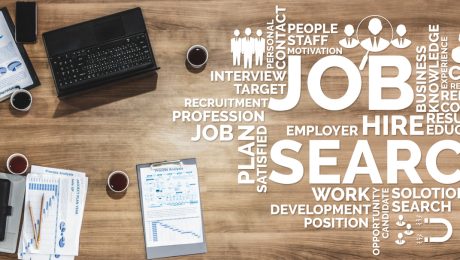Hybrid working can work for businesses too
Hi everyone! Hope you’re all well (not too waterlogged) from these heavy rains we have been having. Welcome to another edition of Tips, we hope you find them useful and make sure you check out the Positions on the Peninsula at the bottom to keep you up to date on what roles are available through our agency.
We have noted a bit of a shift in employee expectations around hybrid models of work. Many of us have been working at home during the pandemic, and you might be hoping for those flexible working options to become permanent.
However, it’s possible your manager might be keen for you to return to the office full-time. Interestingly over 54% of employees say their organisation is offering hybrid working arrangements (survey conducted by Seek) but over a third (35%) say their employer hasn’t offered any support to transition into hybrid working.
Keep in mind that flexibility and hybrid working should matter to employers, too. As more companies adopt it, there is a risk to the employer brand for the companies that don’t. Research has found that 30% of employees say their workload has increased since working from home (as the hours they might have spent commuting are generally now spent online) and 37% of Managers believe their teams have been more productive.
But plenty of workers have missed the social connection and the buffer between work and home life. Many have missed having the “disconnect” between work and home they had when they commuted. The face to face and spontaneous interactions are gone and they do play a significant role in who you are as a team and, for many of us, are contributors to why we love our work. This is where the combination of home and office work-or hybrid work- fits in.
Before approaching your Boss, plan your conversation so you’re clear on what it is you’re asking if you want to explore Hybrid models.
Think about your role and be realistic: Can your role even be conducted remotely? Keep in mind that some roles-such as an office coordinator or reception role-sometimes can’t be performed effectively if they’re entirely remote.
Highlight the Benefits: Explain the benefits of working remotely, and how you might overcome any obstacles you’ve already identified
Outline the structure of your days: Be clear about which days you would like to work remotely, explain how your days at home will be structured in a practical sense, and whether every week will have the same structure
Explain how you will be contactable: Reassure your boss that you’ll be responsive via phone, email or through your organisations messaging system. Everyone needs to be on the same page about reasonable contact ability and responsiveness. Its important the whole team and key stakeholders understand how to contact each other so there aren’t impacts to deliverables.
Suggest a trial period: If your manager is unsure about hybrid working, suggest a trial period. A trial is great for both parties because you can see how its working and review it.
Questions your manager might ask: Your manager believes you’ll be less productive at home- explain how you’ve maintained the same productivity during the pandemic and give examples of specific tasks if you can back that up. There are plenty of ways your manager can monitor output such as daily phone calls/messaging/virtual meetings. Give your manager regular updates as your day progresses.
Your manager thinks you will be distracted at home: Employees are generally more productive at home because there are fewer distractions (except for home schooling and the day care drop off). There are viewer incidental interruptions at home, with none of the office social chats leaving more focus time in general.
Your manager is concerned about the impact on team culture: Research does suggest that 52% of managers are concerned about their team’s culture because of hybrid working. Technology offers plenty of opportunities to connect with the team. You could suggest ideas for weekly team activities such as a Zoom/Teams lunch meeting, team trivia or end of week drinkipoos so you stay connected. You could also suggest a dedicated office day where everyone is there on the same day at least once a week.
Working from home suits some of us well, and if you’re keen to continue or move towards hybrid working, talking to your manager is the first step. Take the time to think about exactly what you want, and how it will work in a practical sense so your boss is confident it will work.
- Published in News from the PP Team
Reduced COVID-19 restrictions from today
PP wanted to share a community service announcement from NSW Government which has announced an early easing of restrictions.
From the beginning of Friday 18 February 2022, the following adjustments will be made to the current settings:
- No density limits (previously one person per 2sqm for hospitality venues)
- QR check-ins will only be required for nightclubs, and for all music festivals with more than 1,000 people. Hospitals, aged and disability facilities may use their existing systems for recording visitors
- Singing and dancing will be permitted at all venues, except music festivals, where singing and dancing can recommence from 25 February
- The recommendation to work from home will change and be returned to the employer’s discretion.
- From the beginning of Friday, 25 February 2022, the following adjustments will be made to the settings:
- Masks will only be mandated on public transport, planes, and indoors at airports, hospitals, aged and disability care facilities, corrections facilities, and indoor music festivals with more than 1,000 people
- Masks are encouraged for indoor settings where you cannot maintain a safe distance from others and for customer-facing retail staff to protect vulnerable people who must access these premises and services
- Each State Government agency will review where it may be appropriate for public-facing staff to wear masks and will implement as necessary
The 20,000 person cap on music festivals will be removed, with singing and dancing permitted. Vaccination requirements will remain for indoor music festivals over 1,000 people, with attendees required to have at least two doses of a COVID-19 vaccine
Source: Northern Beaches Council
- Published in News from the PP Team
Will Job Ad Growth Impact Salaries?
No doubt it’s been a challenging couple of years for many of us when it comes to work (and life really). But the new year may open up a wider range of job choices, with job ads rising across almost every industry. Job ads were 12.5% higher across June-Nov 2021 compared to the six months before, and the upward trend extends across the country, putting us in a good position for 2022. So which roles are growing fastest in our fair state of NSW? And I have highlighted the ones we can help you with. Just to name a few.
- Picker and Packer
- Procurement Officer
- Talent Acquisitions
- Clinician | Pharmacist
- Communications Manager
- Care Worker
- Site Engineer
- Enrolled Nurse
- Process Worker
- Food Delivery Driver
- Reporting Analyst
- Storeman
- Pharmacy Assistant
- Automation Tester
- Customer Service Representative
- Marketing | Sales
- Technical roles
- Healthcare and Medical
Opportunities on the Rise
The skills shortage across many industries is putting more jobseekers in the driver’s seat and we feel this trend will continue to rise throughout the year. What this means is more of a selection for you, but buyer beware you still need to be a solid skills match for the role, so this does not mean you have a license to apply for anything.
Also, with the international borders opening back up it will provide employers with some additional access to overseas talent, but the number of departures could negate arrivals, and fail to fully address the supply and demand imbalance.
Will Job Ad Growth Impact Salaries?
This is where it gets tricky, as previously mentioned if you have all the “bells and whistles” i.e., good skills match, industry experience, technical skills then that puts you in a good position to negotiate on salary. If you’re already working in one of the fast-growing industries, now might be the time to negotiate for a pay rise however, its still important to do your research so you don’t overshoot.
You need to know your worth in the open market, so the first step would be talking to a trusted recruiter…. know anyone 😊 or researching a salary guide online i.e., Seek, LinkedIn, Hays etc. Also consider the non-financial benefits, such as training and development, flexible working hours, WFH options, gym membership, entertainment allowance and other lifestyle related rewards and incentives, the people you work with & the environment etc before negotiating your pay packet.
The consensus is that employees will be able to successfully negotiate “aspects” of their role, beyond salary that ultimately have a more profound impact on their lifestyle and job satisfaction. Although more employers are open to reviewing the salaries to attract and retain, you still need to tread lightly and not come in too heavy and hard at the start of the interview process, otherwise they will right you off as just being driven by salary (which you might well be) but employers want to at least “feel” like you have more “depth” than that.
At offer stage with a new employer, or if you’re negotiating with your current employer, clearly define what salary you are looking for and why you feel you should be getting it. If your salary expectations can’t be met at commencement negotiate that it be built into your contract at the end of the probationary period.
The 2022 job market is off to a promising start, despite the on-going challenges of Covid-19. With job volumes rising and huge demands for skills in “some” areas-now might be the time to look at what opportunities you can take hold of.
- Published in News from the PP Team
Key Words for Interview Success
When you’re preparing for an interview, working out how you will describe yourself and your skills is key. Some words are best avoided in an interview, even if at first glance they appear positive. Some can be overused and clichéd, while others may understate your abilities and a hiring manager has probably heard them a thousand times before.
Beware the Downplay
Its common for jobseekers to feel uneasy talking about themselves in an interview. As a result, people can fall into the trap of using words that tend to downplay their achievements for fear of sounding boastful or arrogant in an interview. Its important to use positive language that sells your strengths but be careful not to come across as a know it all, someone who isn’t open to learning and can’t be managed – it’s a fine line!
Some of the below example words I’m using might send the message that you’re not comfortable talking about your achievements.
We – If you had to describe how you overcame a problem at work, do you tend to use “we” instead of “I”? Many of us naturally do that BUT the interviewer is only interested in your positive impact!
Just – Just can sound like you’re downplaying your responsibilities and achievements, for example “I just assisted with the project” or “I just have basic Excel skills”. While it’s important to be honest and a little humble when talking about your skills in an interview, using “just” will emphasise a skill you’re lacking or not confident in or simply make you sound like you lack confidence in general.
Only – “I only worked there for one year” it reinforces that you are lacking in a certain area. If you feel you have limited experience or skills, instead be up front about the experience that you do have and how you plan to gain further exposure or to upskill in a certain area. In an interview you should always pivot back to your strengths and the skills you do have, wherever possible.
Obviously – Your interviewer has probably never met you before, so don’t assume that anything is obvious. The word can potentially rub people the wrong way as it suggests that the other person should understand something when they may not or that they haven’t prepared properly for the interview with you.
Avoid these overused words
Some words have been overused so often during interviews they can irritate the interviewer.
Workaholic – This term is no longer a selling point, most employers these days are looking for employees who have a balance between professional and personal life and can manage their time effectively. It no longer translates to how committed you might be to a role and organisation if you secure the role.
Perfectionist – This can suggest that you might spend too long on tasks, when being efficient is important. It might be worth considering other ways to talk about your weaknesses and avoid this word altogether. If you really believe this is a key problem for you though, describe it differently. You could say that you “set very high standards for yourself and sometimes need to recognise when a task has been completed well enough and that it is time to move on to the next”.
Be wary of using terms that you cannot back up
It’s important to sell yourself and your strengths in an interview, so prepare responses to back up your claims. Examples below.
Resilient/Motivated by a Challenge – What are some examples of challenges that you have overcome in the past? Describe what the challenge was and why it was difficult and then describe in detail what you did to overcome this hurdle. How did you prepare? Did you need to develop new skills? How did you stay positive and focused throughout? It is so important to “unpack” any claims that you’re resilient so that it is meaningful in an interview setting.
Detail-Oriented – If you describe yourself as detail-oriented then make sure you have no typos or spelling mistakes in your application or have missed any important details in the job ad. Describe a scenario where your attention to detail could have been costly for the business had you not saved the day!
Team Player – This attribute is on nearly every CV I read, and it is still relevant but back it up, when did you share information with the team, ask for feedback, or support and motivate colleagues? How did you do it, and what was the outcome?
What words should you use in an interview
Aim for strong and positive language in your interview, below are some strong action statements that will show how you take the lead and drive actions to achieve great results:
- “’I identified”
- “I developed”
- “I promised”
- “I implemented”
These phrases are perfect for when you need to give examples of skills you used to overcome problems. Getting to the interview stage in your job search is an exciting step. Thinking about the words you’ll use to best describe yourself and your skills will boost your confidence. When you talk about your strengths, remember to back up your claims with examples of how you benefited the business. With careful preparation and practice, you’ll be able to give the interview your best shot and knock their little socks off!
- Published in News from the PP Team
Temp of the Month Award
Gill has been a wonderful edition to the temp team and had lovely words to say about her current assignment – I have loved everything about working here, the office itself, its location, the work, and the people, even their flexibility around changing the working hours slightly to accommodate me. Everyone is Friendly and professional; it has been an interesting and busy customer service role. Thanks Peninsula Personnel.
Host client says – Gill has been a great support for us at V&B the past few months she has done a fantastic job in our busiest time of the year for sales. She is wonderful with our customers helping them with queries on products and deliveries as well as helping management with the transition to the offshore structure. Well done Gill, Congratulations on your Award.
- Published in News from the PP Team
Happy New Year
Happy New Year from the team at PP we hope you got to spend the holiday period enjoying life with restrictions easing however as COVID cases climb, Australian governments have started adopting new ways to keep track of positive cases to help relieve the pressure on enormous PCR waiting times. As a result, at-home rapid antigen tests are fast becoming the norm.
NSW is the latest to bring in a process for registering a positive result from an at-home test, but the rules and regulations are different across the country (just to make things extra confusing).
The rules; self-reporting positive COVID rapid antigen tests became mandatory in NSW from Wednesday January 12, however there is a week’s grace period that will expire on January 19. The NSW government would also like those who tested positive from January 1 onwards to register their test, although it’s not mandatory.
You do not need to register a negative or invalid test or if you’ve had a positive PCR test in the 28 days before your positive rapid antigen test.
How? In your Service NSW app scroll down until you see “COVID-19 resources.” Within that tab there is an option to “register a positive test result” which takes you to the NSW government website. You can lodge a result for yourself, or on behalf of another adult or a child under 15.
You will be asked to determine if you are a “low risk” or “high risk” patient, and if you pick the latter, you will be contacted by NSW Health within 48 hours. NSW Health says positive results should be registered within 24 hours of the test. If you have any issues or need help completing the form, call Service NSW on 13 77 88. Consequences? If you fail to register a positive result from January 19th, you could be fined $1,000.
Please note: most businesses will return to normal trading week commencing 17th January therefore we will update all our job listings and reply to applications. For direct contact with our consultants please email;
Lisa – (temp) lisa@peninsulapersonnel.com.au
Amanda – (perm) amanda@peninsulapersonnel.com.au
- Published in News from the PP Team
Merry Christmas
We will close for Christmas today. Before we do, we wanted to convey our warmest holiday wishes to each of you. No matter how you plan to spend your time, we wish you each a safe and restful break. Merry Christmas and a Happy New Year from Peninsula Personnel. Back 10th January 2022 #newyear #newjob #freshstart #recruitment #deewhy
- Published in News from the PP Team
2021 Golden Temp of the Year Award
We are consistently amazed by your performance. Keep up the great work Marietta, Peninsula Personnel’s “Golden Temp of the Year 2021”
Companies dream of hiring employees like you. Thank you for all your hard work. It’s incredible to see you consistently pushing the bar.
We’d like to congratulate and acknowledge the tremendous success you’ve achieved this year! (Lisa awarding Marietta the award at last night’s Temp Christmas Party)
- Published in News from the PP Team
What does it mean to be “stood down” from your job?
Being stood down from your job can be upsetting and confusing if its something you haven’t faced before. This has been a topic of discussion during Covid as some people have been stood down because of it, so I thought it would be quite timely to discuss it.
What does it mean?
Simply put, being stood down means you stop working and you’re not paid, but you’re still employed by the business and have entitlements. Under the Fair Work Act, employers aren’t required to pay employees who are stood down. Under most modern awards or enterprise agreements (these are legal documents that outline pay and employment conditions), employers are required to consult with their employees about “major workplace changes”.
There are specific circumstances that make a stand down legal. One of those circumstances is if you can’t be “usefully employed” because of a stoppage of work that the employer can’t reasonably be held responsible for. Those circumstances might include things like a natural disaster or the Covid-19 pandemic. Businesses affected by government Covid restrictions, particularly where there is a stay-at-home direction, may be able to lawfully stand down employees without pay. But they can’t stand down employees simply because the business is not doing as well as it was before.
If you have been stood down, you should also check your modern award or enterprise agreement as these documents may contain specific provisions which overrule the general ones set out in the Fair Work Act.
What does “usefully employed” mean, and why is that important?
What it means is that if your employer gains some benefit or value from the work that you do, you’re considered usefully employed and you cannot be lawfully stood down from your role. So, if there is useful work for you in the business that you can reasonably be expected to perform-for example, in a different department such as online rather than shop floor.
However, if you can’t be usefully employed because of a stoppage of work for which the employer cannot be held reasonably responsible, a stand down is legal. Your employer will need to consider whether there are any alternative duties you can perform. If a business is shutting down, however, that’s unlikely to be possible.
When is a “stand down” legitimate?
A stand down might be lawful if an enforceable government direction is in place, such as Covid-19 stay at home restrictions. For example, a furniture store without an online presence will be required to be closed, and therefore shop floor staff could be lawfully stood down for the period of the government direction.
What are your rights during a stand down?
Being stood down will affect some of your rights-while others remain untouched. Remember that being stood down doesn’t mean that your role is redundant. You’re still employed, but your employer is not required to pay your normal salary during the stand down. Check your contract, modern award, or enterprise agreement. Some modern awards include specific provisions relating to leave during the Covid pandemic, including the ability to take extended annual leave at reduced pay.
Sick leave and carer’s leave: You cannot access paid sick leave or carers leave during a period of lawful stand down.
Annual leave and long service leave: You can access annual leave and long service leave with agreement from your employer.
Resigning: If you want to, you are still able to resign from your job during a stand down. Your employer must pay out the accumulated annual leave that you haven’t already taken, as well as your long service leave because your employment is ending.
Dismissal: If your employer seeks to dismiss you during a lawful stand down period, this may be a redundancy, and you need to seek legal advice.
What if the situation that led to the stand down changes?
Importantly, if the stoppage of work event that triggered the stand down ends, your employer can’t legally keep you stood down. If the stand down is maintained, seek legal advice.
How to get help:
Being stood down can be unsettling, particularly if you’re unsure about your specific situation. Remember (before fully freaking out😊) that a stand down is usually a temporary measure where you can expect to return to work. It is hard to stay on top of changing rules and restrictions so if you have any questions or think your employer might have breached the rules or need some personal advice about your situation there is help available. Contact Fair Work Australia for more info or call your union (if you’re a member) or seek legal advice from a specialist in employment law.
- Published in News from the PP Team
Temp of the Month
Congratulations to Temp of the Month, Rodolfo. Our client has commented they have had some extremely busy months with multiple backlogged shipments arriving at once. Rodolfo’s attitude was superb, he was front and centre in terms of the hard work unloading the containers. In addition, he went beyond taking extra responsibility with helping and assisting less experienced temps through our processes. His persistence and reliability assisted in making a difficult situation far more manageable. In response, Rodolfo it’s great that it’s all working in with your studying “I am very grateful to be in this casual role ongoing. It is a great team of people who all work well together, I am very happy”
- Published in News from the PP Team










